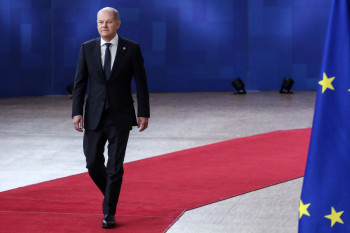The Telegraph: France accused of stalling EU plan to replenish Ukraine's ammunition stocks
France was accused of slowing down the European Union's plan to ramp up ammunition supply to Ukraine by demanding that the shells be produced within the bloc, the Telegraph reported on March 15, citing unnamed EU sources.
Paris wants assurances that a 2 billion euros joint arms procurement deal, currently being discussed by EU member states, will benefit only EU-based companies, according to the publication's sources.
At an informal meeting of EU defense ministers, the union's top diplomat Josep Borrell called to allocate one billion euros from the EU budget to reimburse member states for an immediate transfer of ammunition from their stockpiles to Ukraine. According to Borrell's plan, another billion will be used to collectively buy additional 155 mm ammunition to replenish the national stocks in the hope that larger orders will mean a lower price per shell.
During negotiations over the proposed scheme, French officials said only defense companies based in the EU should have access to the new production contracts, according to the Telegraph.
The demand was reportedly criticized for potentially slowing down support for Ukraine as manufacturing capacities could be easily available outside the bloc.
"Many member states presented different opinions to that of France," an EU diplomat told the Telegraph. "If we want to act immediately, which is necessary, allowing non-EU companies into the scheme is very important."
"Paris clearly favors the EU spending on its own industries over supporting Ukraine," another source said.
According to Borrell, EU foreign and defense ministers are expected to reach a "concrete and formal decision" on the proposed aid package for Ukraine when they gather in Brussels on March 20. The final decision on this issue will remain with the European Parliament.
So far, the EU countries have supplied Ukraine with only 350,000 155-mm artillery shells, the Telegraph wrote.
According to Ukrainian Defense Minister Oleksii Reznikov, cited by the publication, Ukraine needs at least 100,000 155-mm rounds every month to lessen deficits on the battlefield.










